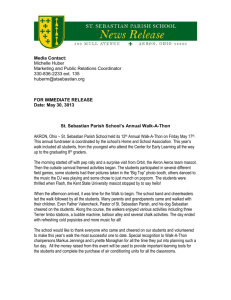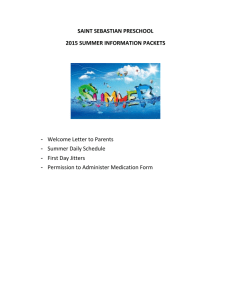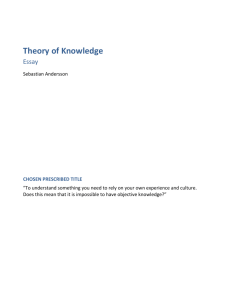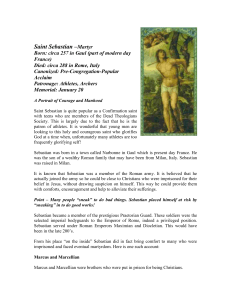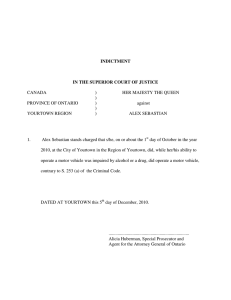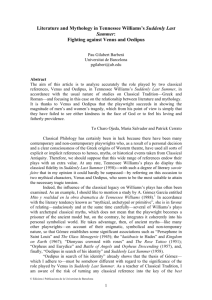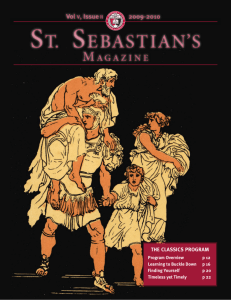paper_CA2003_abstract.doc
advertisement
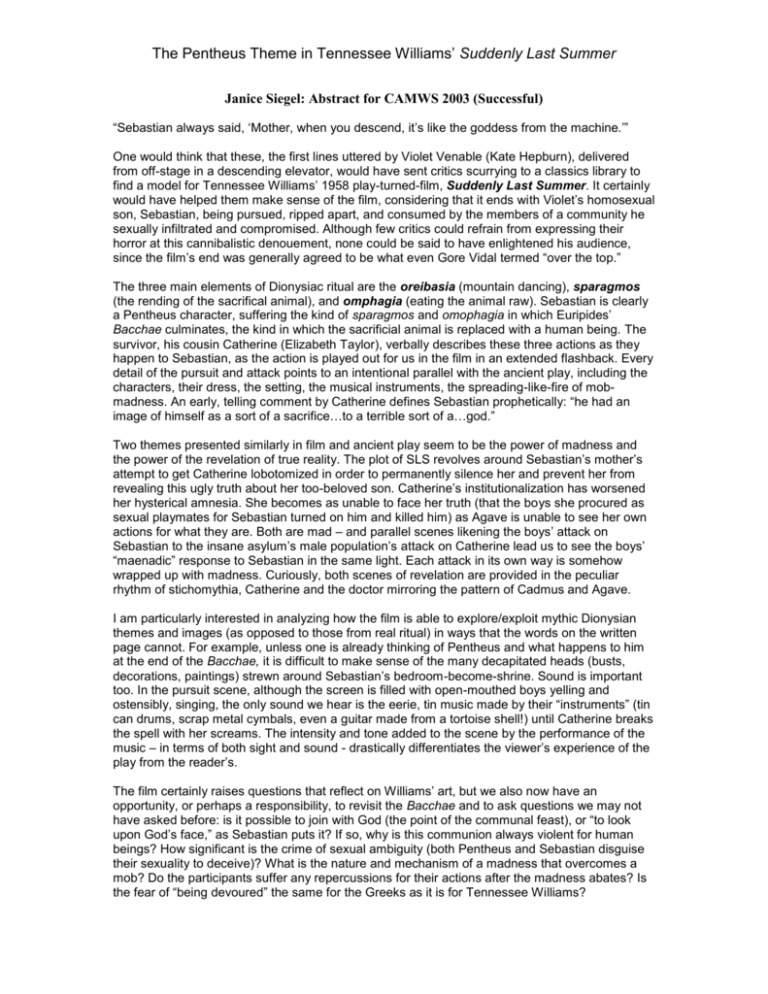
The Pentheus Theme in Tennessee Williams’ Suddenly Last Summer Janice Siegel: Abstract for CAMWS 2003 (Successful) “Sebastian always said, ‘Mother, when you descend, it’s like the goddess from the machine.’” One would think that these, the first lines uttered by Violet Venable (Kate Hepburn), delivered from off-stage in a descending elevator, would have sent critics scurrying to a classics library to find a model for Tennessee Williams’ 1958 play-turned-film, Suddenly Last Summer. It certainly would have helped them make sense of the film, considering that it ends with Violet’s homosexual son, Sebastian, being pursued, ripped apart, and consumed by the members of a community he sexually infiltrated and compromised. Although few critics could refrain from expressing their horror at this cannibalistic denouement, none could be said to have enlightened his audience, since the film’s end was generally agreed to be what even Gore Vidal termed “over the top.” The three main elements of Dionysiac ritual are the oreibasia (mountain dancing), sparagmos (the rending of the sacrifical animal), and omphagia (eating the animal raw). Sebastian is clearly a Pentheus character, suffering the kind of sparagmos and omophagia in which Euripides’ Bacchae culminates, the kind in which the sacrificial animal is replaced with a human being. The survivor, his cousin Catherine (Elizabeth Taylor), verbally describes these three actions as they happen to Sebastian, as the action is played out for us in the film in an extended flashback. Every detail of the pursuit and attack points to an intentional parallel with the ancient play, including the characters, their dress, the setting, the musical instruments, the spreading-like-fire of mobmadness. An early, telling comment by Catherine defines Sebastian prophetically: “he had an image of himself as a sort of a sacrifice…to a terrible sort of a…god.” Two themes presented similarly in film and ancient play seem to be the power of madness and the power of the revelation of true reality. The plot of SLS revolves around Sebastian’s mother’s attempt to get Catherine lobotomized in order to permanently silence her and prevent her from revealing this ugly truth about her too-beloved son. Catherine’s institutionalization has worsened her hysterical amnesia. She becomes as unable to face her truth (that the boys she procured as sexual playmates for Sebastian turned on him and killed him) as Agave is unable to see her own actions for what they are. Both are mad – and parallel scenes likening the boys’ attack on Sebastian to the insane asylum’s male population’s attack on Catherine lead us to see the boys’ “maenadic” response to Sebastian in the same light. Each attack in its own way is somehow wrapped up with madness. Curiously, both scenes of revelation are provided in the peculiar rhythm of stichomythia, Catherine and the doctor mirroring the pattern of Cadmus and Agave. I am particularly interested in analyzing how the film is able to explore/exploit mythic Dionysian themes and images (as opposed to those from real ritual) in ways that the words on the written page cannot. For example, unless one is already thinking of Pentheus and what happens to him at the end of the Bacchae, it is difficult to make sense of the many decapitated heads (busts, decorations, paintings) strewn around Sebastian’s bedroom-become-shrine. Sound is important too. In the pursuit scene, although the screen is filled with open-mouthed boys yelling and ostensibly, singing, the only sound we hear is the eerie, tin music made by their “instruments” (tin can drums, scrap metal cymbals, even a guitar made from a tortoise shell!) until Catherine breaks the spell with her screams. The intensity and tone added to the scene by the performance of the music – in terms of both sight and sound - drastically differentiates the viewer’s experience of the play from the reader’s. The film certainly raises questions that reflect on Williams’ art, but we also now have an opportunity, or perhaps a responsibility, to revisit the Bacchae and to ask questions we may not have asked before: is it possible to join with God (the point of the communal feast), or “to look upon God’s face,” as Sebastian puts it? If so, why is this communion always violent for human beings? How significant is the crime of sexual ambiguity (both Pentheus and Sebastian disguise their sexuality to deceive)? What is the nature and mechanism of a madness that overcomes a mob? Do the participants suffer any repercussions for their actions after the madness abates? Is the fear of “being devoured” the same for the Greeks as it is for Tennessee Williams?
